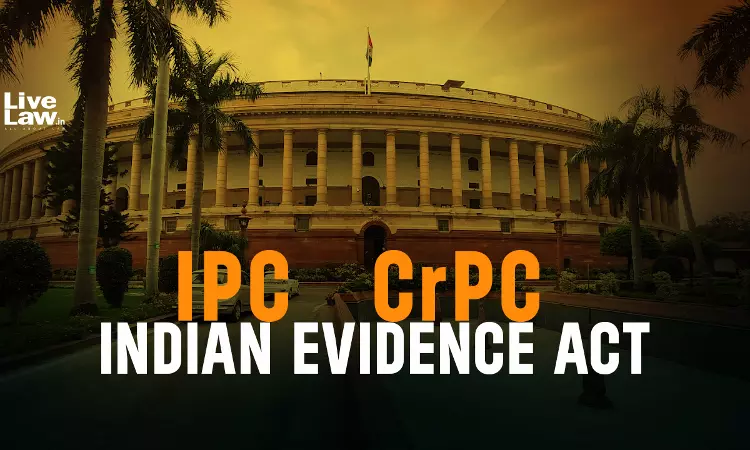Today, the Central Government introduced three bills in the Lok Sabha with the intention of repealing and substituting key legal statutes in India’s criminal justice framework. The proposed bills seek to replace the Indian Penal Code, the Code of Criminal Procedure (CrPC), and the Indian Evidence Act. These bills were subsequently referred to the Parliamentary Standing Committee by the Lok Sabha.
Amit Shah, the Home Minister, presented the revised 2024 versions of these bills, namely the Bhartiya Nyaya Sanhita, Bharatiya Nagarik Suraksha Sanhita, and the Bharatiya Sakshya Bill. The objective behind these bills is a comprehensive restructuring of the criminal justice system. The drafting process involved extensive consultations with various stakeholders, including Chief Ministers, Governors, legal experts from Law Universities, as well as judges from the Supreme Court and High Courts. Moreover, the bills drew inspiration from numerous recommendations put forth by different committees.
The Bhartiya Nyaya Sanhita aims to replace the existing Indian Penal Code of 1860, as stated by Union Home Minister Amit Shah during the introduction of the bills. Similarly, the Bharatiya Nagarik Suraksha Sanhita and the Bharatiya Sakshya are intended to take the place of the Code of Criminal Procedure and the Indian Evidence Act, respectively. All three bills have been directed to undergo a review process by a Standing Committee.
Bill details
The Bhartiya Nyaya Sanhita proposes significant modifications to the Indian Penal Code (IPC), intending to eliminate 175 existing sections and abolish 22 provisions, while also introducing 8 new Sections. The total count of provisions reaches 356.
During his address, Shah asserted that the Bill eliminates the offense of sedition. However, the Bill does encompass clauses related to “Offences against the State.” Under Section 150 of the Bill, acts that jeopardize India’s sovereignty, unity, and integrity fall within its purview. Furthermore, the Bill incorporates measures to prosecute the crime of “Mob Lynching,” which could lead to either a maximum seven-year imprisonment, life sentence, or even the death penalty.
The Bharatiya Nagarik Suraksha Sanhita seeks to revoke nine provisions of the Code of Criminal Procedure (CrPC), proposes amendments to 160 existing provisions, and introduces nine new provisions. The cumulative number of sections in the bill is 533.
As for the Bharatiya Sakshya Bill, it aims to repeal five current provisions of the Indian Evidence Act, recommends alterations to 23 other provisions, and introduces one new provision. In total, the bill consists of 170 sections.












